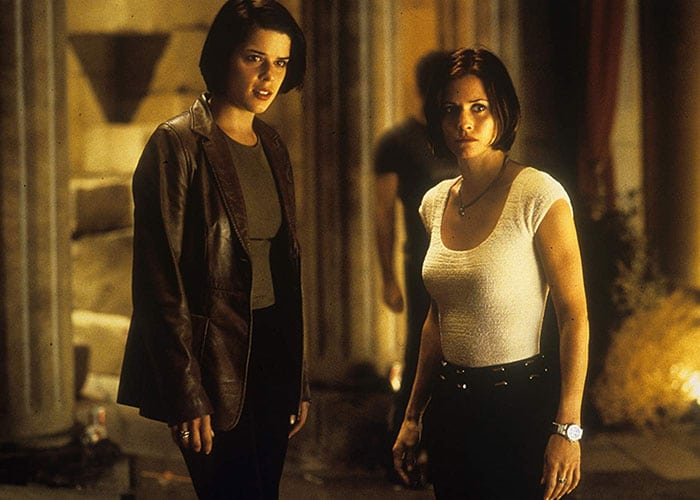One of the greatest joys of being a film lover is finding a story that speaks to you on what feels like a microbial level. I don’t think it’s a massive stretch to say that about my colleagues here at Film School Rejects or even you, dear reader, because we’re all gathered on this space to share in something so much more than a simple hobby or passing interest. Movies and television can affect the way we determine our core values, especially when we get to see ourselves reflected back in fictional situations.
This process of self-discovery through the screen, big or small, is not always easily explicated. Thankfully, a great video essay by Tom van der Linden of Like Stories of Old does a stellar job of kickstarting a broader, ruminative conversation about the meaning behind the properties we love.
In examining a selection of popular movies, TV shows, and video games, van der Linden breaks down the inner workings of media when it comes to delivering storylines with purpose. His discussion about the multiple dimensions of this rather amorphous concept is absolutely fascinating. Not only does he analyze fan favorites like Home Alone and the Dark Knight trilogy with stark insight, but he also makes a compelling case for our own personal desire to escape and find meaning through the fiction we devour.
Existential as that may sound, you won’t regret watching this video.
“Stories like these do add something to our lives worth fantasizing about,” says van der Linden, discerning a universal portrayal of character drive as he dissects various tropes. The characters embodying such archetypes may not actually exist in particularly desirable realities themselves; in fact, tension is a key factor in their quest for purpose. Nevertheless, they are instilled with higher meaning that makes them enjoyable through relatability.
Van der Linden’s essay touches on four tropes — “prepare for nightfall,” the Survivor, the Lone Detective, and the Prisoner — that already serve as excellent examples of fictional representations that are easily identifiable with. But they also got me thinking about the kinds of tropes I personally gravitate towards as a woman. And unexpectedly, my picks particularly concern female characters.
There are but a few instances of women found in the video essay, which — more than anything — speaks to a culture of cinema that largely hasn’t catered to a diverse group of people over the years. And admittedly, the media landscape is still not diverse enough for the most harmful and bland women-centric tropes to be eradicated. Yet, there are a couple in there that have informed my priorities as a person and as a film and TV watcher.
Seeing a Smart Girl on screen is always comforting and inspiring. These characters are typically imbued with a learned intelligence, but they often have to contend with being shunned or misunderstood in some ways. Hermione Granger in Harry Potter, Elizabeth Bennet in Pride & Prejudice, and Meg Murry in A Wrinkle in Time are some illustrations of this trope. They come across as colder, snobbier, or otherwise more off-putting to the people around them on the outset until they prove to be more perceptive, empathetic, and nuanced once their respective stories unfold.
Sometimes Smart Girls are thrust into very obvious environmental stressors. All those magical wars in the Harry Potter franchise and the time-bending terrors of A Wrinkle in Time encourage Smart Girl and Action Girl hybrids for sure. Nevertheless, narrative stakes also manifest in the form of societal pressures — bullying, isolation, or otherwise — that these characters must overcome, too. Their wider purposes will vary, but I value well-conceived Smart Girls who are proud of their braininess while championing other impetuses; love, friendship, family, and otherwise.
I’d like to consider the Final Girl in relation to van der Linden’s video, as well, as it aligns nicely with his dissection of the Survivor. Frankly, the trope has endured a bunch of changes since its inception. Certain associated characteristics such as damsel-like behavior and symbols of purity (like virginity) are key factors in older movies featuring Final Girls, wherein these characters succeed because they are “aspirationally good.” However, the subversion and reimagining of the trope over the years emphasize a more holistic appreciation for these female characters.
Regardless of whether their terrors are supernatural or based in creepy realities, Final Girls undermine expectations of their predetermined characterizations. They are not so meek and helpless as they perhaps appear. Hence, characters like Sidney Prescott in the Scream series, Jen in Revenge, and Thomasin in The Witch are masters of their own destinies. Admittedly, the former exemplifies the power of this trope better than the latter two, simply because she has more discernible character development over the course of multiple movies. That said, the triumph of a Final Girl, across the board, doesn’t merely involve the reclamation of one woman’s personhood. The films that focus on them hit home for all women looking to escape from or tackle adversaries, coming out on top in a world determined to tear them down.
Watching movies is an undoubtedly personal activity that can be extremely important to the way we conduct and express ourselves as people. Our favorite characters say plenty about what we deem purposeful to ourselves and others, and that in and of itself epitomizes the importance of art.

